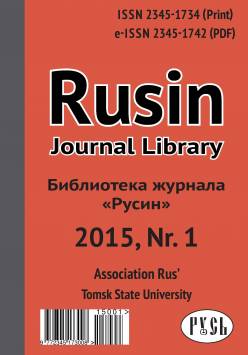On the denotation of action in Russian and Czech
In the present paper, the issue of how different parts of reality can be designated in language is explored by addressing the Slavic verb. When compared to verb units in other European languages, the Slavic verb shows additional denotational potential, which is due to verbal prefixes that can modify the meaning of the verb and enrich its semantics. While Russian and Czech are closely related languages, they show considerable differences in grammar and lexical semantics, including those of the verb. The paper focuses on the ways an action is denoted by the speakers of Russian and Czech. By studying verbal units with different types of nomination, we discover that multi-level semantics of the Slavic verb denotes an action together with a number of parameters, and follows various nominative models. The comparison of Russian and Czech verb units allows to highlight the common and the specific features in how these languages categorize action. The comparison also helps discover the principles that govern the linguistic rendering of action in the two languages.
Keywords
русский глагол, чешский глагол, номинация действия, семантика глагола, модификационные и мутационные значения, Russian verb, Czech verb, denotation of action, verb semantics, modificational and mutational meaningsAuthors
| Name | Organization | |
| Fil Yulia | Tomsk State University | 2fiL@inbox.ru |
References

On the denotation of action in Russian and Czech | Rusin Journal Library. 2015. № 3 (3).